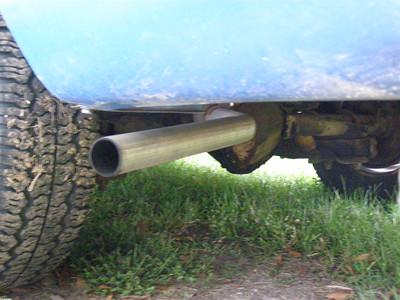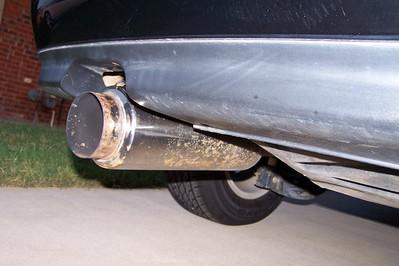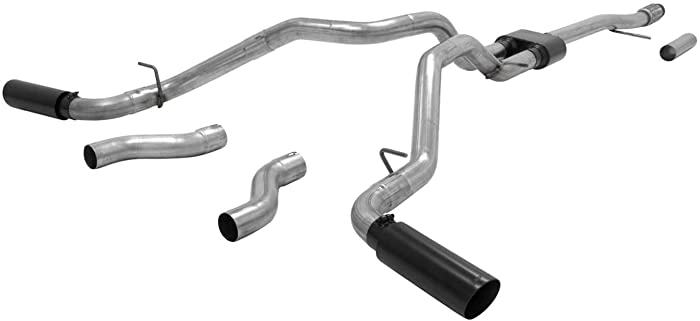The main pros of aftermarket exhaust systems are that they can provide your car with a louder, more aggressive sound, and can also improve the performance and fuel economy of your vehicle. The main cons of aftermarket exhaust systems are that they can be expensive and that they often result in a decrease in the lifespan of your car’s engine.
If you’re like most drivers, the thought of upgrading your exhaust system is an appealing one. After all, who wouldn’t want a little more power and better sound from their car? But before you take the plunge and buy an aftermarket exhaust system, it’s important to understand the pros and cons of doing so.
We’ll take a look at some of the benefits and drawbacks of upgrading your exhaust system. By understanding both sides of the story, you can make an informed decision about whether or not an aftermarket exhaust is right for you.
What is Aftermarket Exhaust?

The aftermarket exhaust is the set of pipes, catalytic converters, and mufflers that direct gasses away from your engine.
An aftermarket exhaust is an exhaust system that is not made by the original equipment manufacturer (OEM). Aftermarket exhausts are designed and built by companies other than OEM.
There are a variety of reasons why people might choose to install an aftermarket exhaust. Some people may prefer the sound or look of an aftermarket exhaust, while others may install one in order to improve performance or gas mileage.
Aftermarket exhausts can be made from a variety of materials, including steel, aluminum, and titanium. They can also come in a variety of shapes and sizes, and some feature unique designs that are not found on OEM systems.
If you’re looking for improved performance and an aggressive sound, an aftermarket exhaust system is a great option. Just be sure to consult with a trusted mechanic to make sure you get the right system for your car.
Aftermarket Exhaust Pros And Cons

The Pros
Aftermarket exhausts offer a range of pros, including increased horsepower and torque, improved sound and fuel economy, and reduced weight. Additionally, many aftermarket exhausts look better than the factory-installed versions. Let’s find out all the benefits offered by aftermarket exhaust.
- They improve performance.
Aftermarket exhausts allow your engine to breathe more easily, which means it can produce more power. This translates into better acceleration, handling, and braking.
- They make your car sound cooler.
Aftermarket exhausts create a deeper, throatier sound that many drivers find appealing. If you’re looking to add some personality to your car, aftermarket exhaust is a perfect way to do it.
- They increase fuel efficiency.
Aftermarket exhaust systems can increase fuel efficiency by anywhere from 1-5%. This is because they allow your engine to run more efficiently, and produce less heat. When an engine runs cooler, it doesn’t have to work as hard to generate power, which saves you gas.
- They make your car look good.
They are also a great way to customize the look of your car, with a variety of different styles and colors available.
- Climate change reduction
One of the benefits of aftermarket exhaust is that it can help reduce climate change. By reducing the number of pollutants emitted from cars, aftermarket exhaust can play a role in mitigating one of the major causes of climate change. Additionally, many aftermarket exhaust systems are made with high-quality materials and engineered to optimize performance, making them a great choice for drivers looking for an upgrade.
- Car resale value increase
Aftermarket exhaust systems can add performance and style to your car, and often result in a higher resale value. Many buyers are looking for cars with aftermarket exhausts, so having one installed on your vehicle can make it more attractive to potential buyers down the road.
The Cons
There are a few potential downsides to aftermarket exhaust systems.
- Some drivers don’t like aggressive sounds.
Some drivers don’t like the sound or find it too loud. Even, they can be quite loud and may not be street-legal in all states.
- Difficult to maintain.
They are not typically covered by warranties, if there is a problem with the exhaust, you will likely have to pay to have it fixed. Additionally, many aftermarket exhausts are made from materials that are not as durable as those used in stock exhaust systems, so they may not last as long.
- Takes a longer time to install
It requires a lot of time and effort to install properly. If you’re not confident in your own mechanical abilities, it’s best to leave the installation to a professional.
- Expensive
They can be quite expensive. If you’re on a tight budget, an aftermarket exhaust may not be the best option for you. Instead, you may want to consider staying with the stock exhaust system and upgrading it with high-quality parts.
Should You Buy Aftermarket Exhaust?
There are a lot of factors to consider when deciding whether or not to buy an aftermarket exhaust system for your car. Some of the most important factors include the type of driving you do, the type of vehicle you have, and your budget.
If you do a lot of highway driving, an aftermarket exhaust system can help improve performance and fuel economy. However, if you do a lot of stop-and-go driving or need to make frequent trips in your car, an aftermarket exhaust may not be the best option for you.
Aftermarket exhaust can give your car a more aggressive sound, which some people may enjoy. However, it’s important to note that aftermarket exhaust can also be louder and potentially noisier than the stock exhaust, which may not be ideal for everyone. Additionally, aftermarket exhaust can be more expensive than stock exhaust.
The decision to invest in an aftermarket exhaust is a personal one. The pros clearly outweigh the cons for some people, while others can benefit from investing their money elsewhere.

